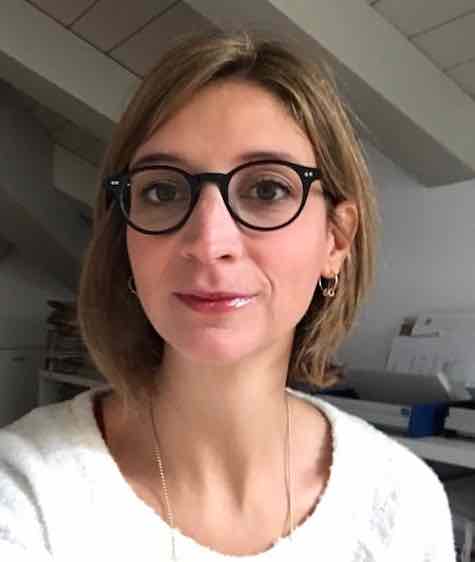Studying at the University of Verona
Here you can find information on the organisational aspects of the Programme, lecture timetables, learning activities and useful contact details for your time at the University, from enrolment to graduation.
Academic calendar
The academic calendar shows the deadlines and scheduled events that are relevant to students, teaching and technical-administrative staff of the University. Public holidays and University closures are also indicated. The academic year normally begins on 1 October each year and ends on 30 September of the following year.
Course calendar
The Academic Calendar sets out the degree programme lecture and exam timetables, as well as the relevant university closure dates..
| Period | From | To |
|---|---|---|
| I semestre (Lingue e letterature straniere) | Sep 30, 2019 | Jan 11, 2020 |
| Annuale (Lingue e letterature straniere) | Sep 30, 2019 | May 30, 2020 |
| II semestre (Lingue e letterature straniere) | Feb 17, 2020 | May 30, 2020 |
| Session | From | To |
|---|---|---|
| ESAMI LINGUE - sessione invernale | Jan 13, 2020 | Feb 15, 2020 |
| ESAMI LINGUE - sessione estiva | Jun 3, 2020 | Jul 25, 2020 |
| ESAMI LINGUE - sessione autunnale | Aug 24, 2020 | Sep 19, 2020 |
| Session | From | To |
|---|---|---|
| LAUREE LINGUE - sessione autunnale (a.a. 2018/19) | Nov 4, 2019 | Nov 9, 2019 |
| LAUREE LINGUE - sessione straordinaria (a.a. 2018/19) | Mar 30, 2020 | Apr 4, 2020 |
| LAUREE LINGUE - sessione estiva (a.a. 2019/20) | Jul 6, 2020 | Jul 11, 2020 |
| LAUREE LINGUE - sessione autunnale (a.a. 2019/20) | Nov 2, 2020 | Nov 7, 2020 |
| LAUREE LINGUE - sessione straordinaria (a.a. 2019/20) | Apr 7, 2021 | Apr 13, 2021 |
| Period | From | To |
|---|---|---|
| Festa Ognissanti (Lingue) | Nov 1, 2019 | Nov 1, 2019 |
| Sospensione delle lezioni | Nov 2, 2019 | Nov 2, 2019 |
| Vacanze di Natale (Lingue) | Dec 23, 2019 | Jan 6, 2020 |
| Vacanze di Pasqua (Lingue) | Apr 10, 2020 | Apr 14, 2020 |
| Festa della Liberazione (Lingue) | Apr 25, 2020 | Apr 25, 2020 |
| Festa del Lavoro (Lingue) | May 1, 2020 | May 1, 2020 |
| Sospensione delle lezioni | May 2, 2020 | May 2, 2020 |
| Festa del Santo Patrono (Lingue) | May 21, 2020 | May 21, 2020 |
| Sospensione delle lezioni | May 22, 2020 | May 23, 2020 |
| Festa della Repubblica (Lingue) | Jun 2, 2020 | Jun 2, 2020 |
| Vacanze estive (Lingue) | Aug 10, 2020 | Aug 15, 2020 |
Exam calendar
Exam dates and rounds are managed by the relevant Foreign Languages and Literatures Teaching and Student Services Unit.
To view all the exam sessions available, please use the Exam dashboard on ESSE3.
If you forgot your login details or have problems logging in, please contact the relevant IT HelpDesk, or check the login details recovery web page.
Should you have any doubts or questions, please check the Enrollment FAQs
Academic staff
 daniele.beltrame@univr.it
daniele.beltrame@univr.it
 bernardo.calabrese@univr.it
bernardo.calabrese@univr.it
 silvia.cavalieri@univr.it
silvia.cavalieri@univr.it
 riccardo.cella@univr.it
riccardo.cella@univr.it
 elisa.dallarosa@univr.it
elisa.dallarosa@univr.it
 sara.dattoma@univr.it
sara.dattoma@univr.it
 jacopo.galavotti@univr.it
jacopo.galavotti@univr.it
 veronica.gobbato@univr.it
veronica.gobbato@univr.it
 diegogabriel.krivochen@univr.it
diegogabriel.krivochen@univr.it
 stefania.montemezzo@univr.it
stefania.montemezzo@univr.it
 chunye.niu@univr.it
chunye.niu@univr.it
 simone.pregnolato@univr.it
simone.pregnolato@univr.it
 fabioantonio.scrignoli@univr.it
fabioantonio.scrignoli@univr.it
 tania.triberio@univr.it
tania.triberio@univr.it
 francesco.zuin@univr.it
francesco.zuin@univr.it
Study Plan
The Study Plan includes all modules, teaching and learning activities that each student will need to undertake during their time at the University.
Please select your Study Plan based on your enrollment year.
1° Year
| Modules | Credits | TAF | SSD |
|---|
German literature and culture 1
German literature and culture 1
2° Year activated in the A.Y. 2020/2021
| Modules | Credits | TAF | SSD |
|---|
English literature and culture 2
French literature and culture 2
German literature and culture 2
Spanish literature and culture 2
English literature and culture 2
French literature and culture 2
German literature and culture 2
Spanish literature and culture 2
Italian literature and culture
Geography of communication and international trade
Modern and Contemporary Economic History
Theory and Techniques of communication
3° Year activated in the A.Y. 2021/2022
| Modules | Credits | TAF | SSD |
|---|
Principles of international marketing
| Modules | Credits | TAF | SSD |
|---|
German literature and culture 1
German literature and culture 1
| Modules | Credits | TAF | SSD |
|---|
English literature and culture 2
French literature and culture 2
German literature and culture 2
Spanish literature and culture 2
English literature and culture 2
French literature and culture 2
German literature and culture 2
Spanish literature and culture 2
Italian literature and culture
Geography of communication and international trade
Modern and Contemporary Economic History
Theory and Techniques of communication
| Modules | Credits | TAF | SSD |
|---|
Principles of international marketing
| Modules | Credits | TAF | SSD |
|---|
Legend | Type of training activity (TTA)
TAF (Type of Educational Activity) All courses and activities are classified into different types of educational activities, indicated by a letter.
French language 2 (2020/2021)
Teaching code
4S002917
Teacher
Coordinator
Credits
9
Language
French
Scientific Disciplinary Sector (SSD)
L-LIN/04 - LANGUAGE AND TRANSLATION – FRENCH
Period
II semestre (Lingue e letterature straniere) dal Feb 15, 2021 al May 29, 2021.
Learning outcomes
At the end of the course students will be able to: - know the basic notions and the methodological tools to operate on French lexicon; - apply basic notions for the dectection of lexical phenomena; - know the main laws concerning language policy in the francophone world; - for the students in Tourism and Commerce: apply theoretical notions for the detection of phenomena concerning specialized lexicon; - for the the students in Foreign Languages and Literatures and in Edition: acquire the main notions of lexicography and demonstrate a good knowledge of the most important lexicographic tools of the French and Francophone domains; - demonstrate to have atteined a B2 level in French language.
Program
The program consists of three parts:
1. Lexicology: basic notions. The main metalinguistic notions (lexie, vocable, mot-forme) will be presented as well as the most elementary phenomena concerning lexical morphology and lexical semantics. Each case will be illustrated by examples from the French language.
2. Linguistic policy: the evolution of the French and French-speaking law provisions concerning affirmation and dissemination of the French language will be presented. We will focus on the definition of "francophonie" and will present the main languages and the main dialects spoken in France.
3. Introduction to specialized lexicon: application of the metalinguistic notions to lexical phenomena of the specific domains of tourism and international commerce.
Didactic methods
Attending students
Lectures on the main theoretical notions, the presentation of the main language policy provisions as well as the main lexicographical resources about French language. Each of the three parts of the program will be illustrated by examples from French language.
The course materials and any further details will be published after each lecture on the dedicated e-learning platform, which will include calendarization of the lessons and detailed program, available from the first lesson.
During the academic year the teacher will be available during office hours (see web page).
Non-attending students
Non-attending students will find, on the dedicated e-learning platform, materials and insights on the subjects of the course, as well as the detailed program, available from the first lesson. The teacher will provide support during office hours (see web page).
| Author | Title | Publishing house | Year | ISBN | Notes |
|---|---|---|---|---|---|
| Polguère, Alain | Lexicologie et sémantique lexicale (Edizione 3) | Presses de l'Université de Montréal | 2016 |
Examination Methods
The program consists of three parts:
1. Lexicology: basic notions. The main metalinguistic notions (lexie, vocable, mot-forme) will be presented as well as the most elementary phenomena concerning lexical morphology and lexical semantics. Each case will be illustrated by examples from the French language.
2. Linguistic policy: the evolution of the French and French-speaking law provisions concerning affirmation and dissemination of the French language will be presented. We will focus on the definition of "francophonie" and will present the main languages and the main dialects spoken in France.
3. Introduction to specialized lexicon: application of the metalinguistic notions to lexical phenomena of the specific domains of tourism and international commerce.
Didactic methods
Attending students
Lectures on the main theoretical notions, the presentation of the main language policy provisions as well as the main lexicographical resources about French language. Each of the three parts of the program will be illustrated by examples from French language.
The course materials and any further details will be published after each lecture on the dedicated e-learning platform, which will include calendarization of the lessons and detailed program, available from the first lesson.
During the academic year the teacher will be available during office hours (see web page).
Non-attending students
Non-attending students will find, on the dedicated e-learning platform, materials and insights on the subjects of the course, as well as the detailed program, available from the first lesson. The teacher will provide support during office hours (see web page).
Type D and Type F activities
| years | Modules | TAF | Teacher |
|---|---|---|---|
| 1° | Seminario metodologico di analisi del testo letterario [Gruppo 1] | D |
Andrea Zinato
|
| 1° | Seminario metodologico di analisi del testo letterario [Gruppo 2] | D |
Andrea Zinato
|
| years | Modules | TAF | Teacher |
|---|---|---|---|
| 1° 2° | History of English Literature (F-O) [Cognomi A-E] | D |
Annalisa Pes
(Coordinator)
|
| 1° 2° | History of English Literature (F-O) [Cognomi F-O] | D |
Annalisa Pes
(Coordinator)
|
| 1° 2° | History of English Literature (F-O) [Cognomi P-Z] | D |
Annalisa Pes
|
To discover all the teaching activities accredited by the foreign teaching college click here
Career prospects
Module/Programme news
News for students
There you will find information, resources and services useful during your time at the University (Student’s exam record, your study plan on ESSE3, Distance Learning courses, university email account, office forms, administrative procedures, etc.). You can log into MyUnivr with your GIA login details: only in this way will you be able to receive notification of all the notices from your teachers and your secretariat via email and soon also via the Univr app.
Student login and resources
Gestione carriere
Assegnazione tutore
Attività accreditate D/F
Calendario didattico dettagliato
Cambio lingua curriculare
Competenze informatiche
Competenze linguistiche (prima e seconda lingua)
Competenze linguistiche in triennale (terza lingua CFU F)
Compilazione del piano didattico
Corso di Lingua portoghese
Erasmus+ e altre esperienze all'estero
Linguistic training CLA
Presentazione dei corsi di studio e Open day
Graduation
List of theses and work experience proposals
| Stage | Research area |
|---|---|
| PROGETTO MAMBRINO Stage per bibliografia | Various topics |
Saperi minimi
Stage e tirocini
Nel piano didattico della laurea triennale in Lingue per il turismo e il commercio internazionale (L12) è previsto un periodo di stage obbligatorio (CFU 6) in organizzazioni imprenditoriali.
Le attività di stage sono finalizzate a far acquisire allo studente una conoscenza diretta in settori di particolare interesse per l’inserimento nel mondo del lavoro e per l’acquisizione di abilità professionali specifiche.
Le attività di stage sono svolte sotto la diretta responsabilità di un singolo docente presso studi professionali, enti della pubblica amministrazione, aziende accreditate dall’Ateneo veronese.
I crediti maturati in seguito ad attività di stage saranno attribuiti secondo quanto disposto nel dettaglio dal “Regolamento d’Ateneo per il riconoscimento dei crediti maturati negli stage universitari” vigente.
- Tutte le informazioni in merito agli stage per futuri studenti sono disponibili alla pagina Stage e tirocini.
- Tutte le informazioni in merito agli stage per studenti iscritti sono pubblicate in MyUnivr - come fare per - stage e tirocini.
- Tutte le informazioni in merito agli stage per le aziende sono disponili alla pagina Stage e tirocini per azienze.
Ulteriori informazioni al seguente link https://www.univr.it/it/i-nostri-servizi/gestione-carriere-studenti-lingue-e-letterature-straniere/stage-e-tirocini-lingue-e-letterature-straniere

 +39 045802 8409
+39 045802 8409


























































